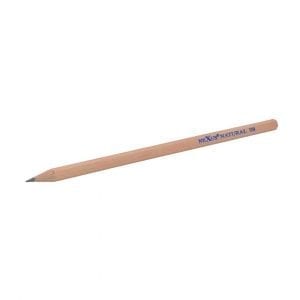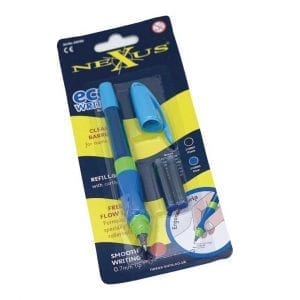Can children hold pens in the digital age?

Children’s social habits are changing. They used to play with bats and balls or building bricks, now they are more likely to play Tetris on the iPad.
It seems that a tablet or smartphone can be a welcome distraction for busy parents and a source of entertainment for the kids, but the cost is that children aren’t developing the fine motor skills they need to learn handwriting.
Research has found that children are going to school and are being given a pencil but, increasingly, they are not able to hold it because they don’t have the fundamental movement skills.
To be able to hold a pencil and use it correctly, you need to develop the fine muscles in your fingers. Children need lots of opportunity to develop these skills.
The inability of children to grasp a pencil and write correctly is a direct result of the emerging technologies such as smartphones and tablets used in the home.
It’s much easier to give a child a tablet than to spend time teaching them how to build something out of blocks or use scissors to cut something out.
A few videos have gone viral in recent years showing a one year old, desperately swiping the front of a magazine and teenagers trying to use a ring-dial analogue telephone. Whilst being amusing, it is indicative of the growing social trend.
According to Ofcom, half of households have tablets with over 76% owning smartphones.
Dr Angela Webb, a former primary school head teacher, who is a child psychologist and board member of The National Handwriting Association, is passionate about handwriting. She believes physical and creative play and fine motor skills are vital in a child’s development. She states that “Learning by interacting physically with their environment for a growing child up to the age of seven is vital as it impacts on adulthood”.
Children are heavily influenced by their parents and parents’ social habits have changed with more texting, making lists on smartphones and shopping online, so, a child’s experience of early literacy has changed.
Research has shown that handwriting is the basic building block to developing a child’s literacy and numeracy. We do not quite know the impact all these changes will have on the Z generation, but we do know the importance of handwriting.
A study back in 2005 from the neuroscience laboratory at Aix-Marseille University took 76 children aged three to five years old and divided them into 2 groups. The first group wrote by hand while the second group used a computer keyboard. Research showed that the first group, who learnt to write letters by hand, could recognise type better than the second group who used the keyboard.
This was also true of a research study in 2016 published in the Science Journal that found students who took notes manually were more selective and retained more information and could remember more facts and figures than students who used digital devices.
For children, handwriting is so important. How children learn handwriting is directly linked to literacy and numeracy. It takes time and lots of practice, crafting letterforms and understanding the words they create.
We are now looking at how much handwriting is used and taught in nurseries and primary schools as we now realise that handwriting is one of the most important skills a child can learn. It’s the way we assess the development in children through exams and tests, all of which are handwritten. Handwriting leads to spelling, language development and numeracy.
The development of technology has meant that we do write less as adults and in fact, a recent survey in 2014 showed some adults had gone 6 months without writing anything. However, in education, a child will be spending up to 50% engaged in handwriting. In secondary schools only 10-17% of school time is taken up with the use of technology.
Handwriting is still the main tool a child will need from primary school through to university and beyond. If they struggle with handwriting, then the impact could hinder their development in later life.
To teach good handwriting skills, children first must be able to grip and hold a pen or pencil correctly. This allows for the correct hand movement and the fine motor skills needed to create letterforms.
So can children hold pens in a digital age? Is it important?
We think it is. Children need a fun and efficient way to learn handwriting, letterforms, language and numeracy. Nexus have developed the Pegs to Range which includes a number of teaching aids that are both fun and which most importantly, promote best practice.
These teaching aids are also now available for home learning. Developed by teaching professionals they help your child develop the correct basics for later life.
For Pupils who are using Pencils to practice and develop their handwriting skills we supply a wide range which have been specifically designed to help pupils develop their fine motor skills and tripod grip.
For those pupils who have moved on to using pens we have designed and produced the incredible Nexus Eco Writer. This pen not only helps pupils to continue their handwriting development but is also environmentally friendly as it uses refillable cartridges. Available in Packs of 30 for classroom settings and blister packs for home settings.
Nexus encourages parents to use our products as a fun and engaging way to teach handwriting, literacy and numeracy. Our Pegs to … Range is being used in schools nationally see the range.
Shop our full range of educational toys and home learning products.

Nexus design and supply high quality educational equipment and toys for schools and home learning.
Back to NewsRelated Posts
- The Truth Behind your ‘Recyclable’ Glue Sticks
- Closing the Gap
- Our Award-Winning U-fill!
- We’ve buddied up with Kids Against Plastic!
- Learn Play Nexus presents at the National Handwriting Association members day & AGM 2022
- Learn Play Nexus sponsors the Northern Ireland Eco Schools Green Flag Awards
- Nexus exhibit at the Childcare & Education Expo
- Using Pegs to Count Up to Support Bar Modelling (Intervention to Support KS2 Learners Working Below the Expected Standard)
- An ideal teaching resource for pupil premium funding
- U-Fill there is a better way
- Introducing the Nexus Go trikes and bikes range
- Can children hold pens in the digital age?
- Do the iPad generation need to learn handwriting skills?
- Pegs to Catch-Up – Try our two month free trial
- Pegs to Count Up Testimonial from Amberley Primary
- Nexus Sustainable Educational Toys
- Pegs to Paper testimonial from Freemantle Community Academy
- Maths Remote Learning Videos for Ages 4-5
- Catch up funding for schools during COVID pandemic lockdown
- ‘Pegs to’ Range Early Years Monthly Webinars


Leave a Reply